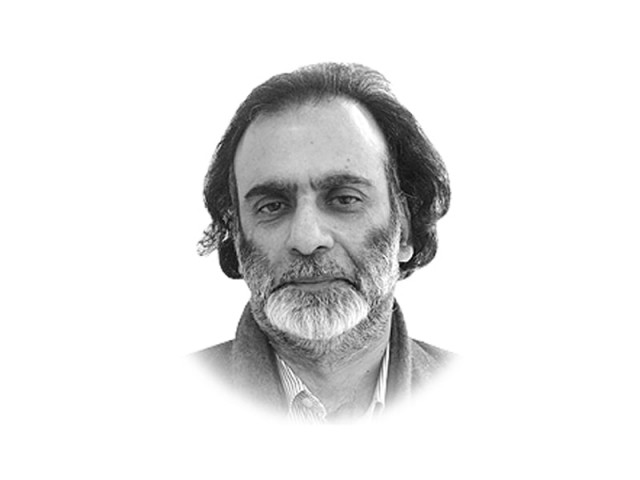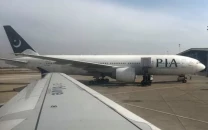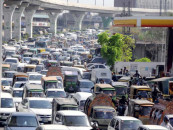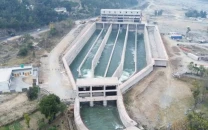Zarb-e-Azb: Pakistan’s war and the missing counter-narrative
At the heart of this ambivalence is issue of narrative that informs our understanding of war, identifying the enemy.

Take for instance the issue of the Internally Displaced Persons (IDPs). As a number of commentators have already pointed out, a crucial dimension of this struggle is the three-quarters of a million IDPs who have had to leave their homes in North Waziristan and are now refugees in their own homeland. Many will have lost loved ones. Assertions suggesting that there has been near zero collateral damage are simply not credible. At the same time, whatever assistance has been provided to them is far too little. Media reports indicate that even the basic necessities have yet to be made available to the men, women and children of the area. They have been forced, through no fault of their own, to share a hugely disproportionate burden of a war that is certainly national in scope — in terms of the implications of its outcome. According to one report, the government has released a sum of Rs330 million so far, which works out to less than Rs500 a person. This is atrocious, if true. That such state of affairs should be accompanied by huge expenditure on grandiose transport projects and other schemes costing billions, while provincial governments offer a pittance to support the IDPs is nothing less than shameful.
It is not just a matter of providing the necessary support to the IDPs for having to put them in a position of severe hardship and deprivation for the sake of the national interest. There is not a whole lot that the rest of the nation, particularly the elite, appear to be doing for the ‘national interest’. In fact, the nation is far from being at war; so far it is just the military. At the heart of this ambivalence is the issue of the narrative or storyline that informs our understanding of the war, our identification of the enemy and our appreciation of what is at stake.
This kind of war cannot be won unless it is won in the realm of the narrative. And this is far from simple. As Moeed Yusuf, who has studied terrorism in a number of South Asian countries, pointed out in a recent talk, the extremists’ narrative has not been successfully countered in any of the cases he had looked at. As has been obvious for some time, the extremists have been adept at politicising religion, and at the same time, they have done a good job of exploiting unrest in society as a diminished state loses credibility, and is progressively less able to provide justice, education, health and safety for its citizens.
Given the rather dismal performance of the state in Pakistan, it is then a welcome development that the use of religion by extremist or terrorist organisations to cloak political aspirations for power and territory does not provide an adequate cover for their actions in popular perceptions — going by the recent PEW survey. The survey found two-thirds of the Pakistani respondents concerned about extremism and only 12 per cent see al Qaeda in a favourable light. Similarly, while nearly 60 per cent regarded the Taliban, including the Tehreek-i-Taliban Pakistan (TTP) unfavourably, only eight per cent had a positive view of them. It is also significant, however, that 33 per cent expressed no views in this regard. Whether this was out of fear or uncertainty, it is significant precisely because, in time, they could go either way and if we want to see them becoming a part of the solution rather than a part of the problem, the development of an effective counter-narrative may be crucial. But, at this point we do see a positive change in perceptions: the support for the proposition that attacks on civilians, including suicide bombings, are justified under certain circumstances has fallen to three per cent, according to the survey. Compare that to the situation a decade ago when 41 per cent of those polled said that these could be justified.
Countries like Turkey and Bangladesh, which have comparatively seen much less of this kind of violence, also provide an interesting comparison. In Turkey over the last five years, support for such violence has risen from a low of four per cent to 18 per cent; in Bangladesh, the figure provided only for this year is a high 47 per cent. Whatever the margin of error in such surveys, the trend in the context of Pakistan is certainly encouraging in terms of the space available for the counter-narrative. But, is the state, among others, willing to take advantage and build on it? Right now it does not appear that way. Consider the fact that while organisations such as the Falah-e-Insaniyat Foundation (FIF), formerly the Jamaatud Dawa (JUD), or the Al-Khidmat Foundation linked to the Jamaat-i-Islami, work freely among the refugees, those non-state organisations that simply want to carry out humanitarian work minus the politico-religious dimension are reportedly put though a long process of obtaining a No Objection Certificate. Here is an instructive quote illuminating the implicit narrative of the other side, reported in Dawn: “The Pakistan Army is really cooperative towards us,” says Mohammad Sarfaraz, the chief organiser of the JuD camp. “We were the first ones to set up a greeting camp to receive the IDPs even though the area was in the red zone. This is the time to win the hearts and minds of these refugees, whom the government is failing. And people from North Waziristan are grateful to us. Many of them have promised to work for us — and that too for life.” (Where are our mainstream political parties in this effort?) So suffice to say, if this is an indication of the state of our counter-narrative; we have a long, long way to go.
Published in The Express Tribune, July 12th, 2014.
Like Opinion & Editorial on Facebook, follow @ETOpEd on Twitter to receive all updates on all our daily pieces.













COMMENTS
Comments are moderated and generally will be posted if they are on-topic and not abusive.
For more information, please see our Comments FAQ